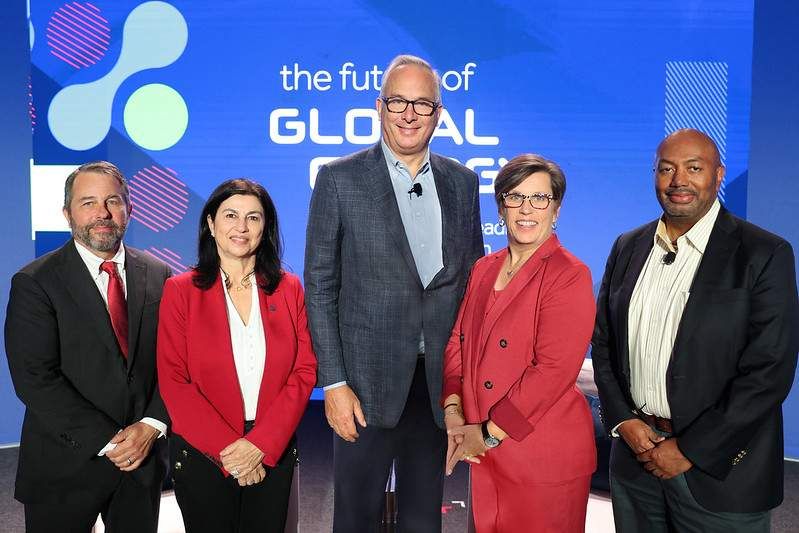the view from heti
Event spotlights Houston's collaborative approach, innovation driving global energy transition

At the Greater Houston Partnership’s fourth annual Future of Global Energy Conference, industry leaders, innovators, and policymakers gathered to explore how we can collectively create a low-carbon future that is resilient, reliable and sustainable while meeting growing energy demands. Photo via GHP
Houston is poised to lead the global energy transition, but collaboration is key to success.
At the Greater Houston Partnership’s fourth annual Future of Global Energy Conference, industry leaders, innovators, and policymakers gathered to explore one central theme: how we can collectively create a low-carbon future that is resilient, reliable and sustainable while meeting growing energy demands.
The discussions highlighted the critical role of partnerships, investment and innovation in driving Houston’s leadership on the global stage.
The Power of Collaboration
“What we have here in Houston that’s really unique…The importance of collaboration with industry is critical,' says Carmichael Roberts, co-founder and managing partner at Material Impact and co-lead of Breakthrough Energy Ventures' Investment Committee.
Roberts stressed the importance of industry partnerships, noting that while Houston’s energy ecosystem has matured significantly, collaboration is more important than ever to move at the necessary pace.
“Because of our industrial base and our infrastructure, we are uniquely positioned to help those early-stage projects get done. But that also requires risk-taking from capitol providers and incumbent companies," says Bobby Tudor, CEO of Artemis Energy Partners.
The President and CEO of the Federal Reserve Bank of Dallas, Lorie Logan, said transformative issues taking place in our economy provide Houston the ability to lead the energy transition, capitalizing on its robust infrastructure, innovation ecosystem and strategic role in shaping the future of energy.
“Structural changes in the economy, like the energy transition and advances in artificial intelligence, are key drivers fueling strong investment demand and unlocking potential productivity gains,” Logan says.
At the same time, the need to reduce carbon emissions has never been more urgent. With Houston's industrial infrastructure and emerging talent, the region is ready to meet these dual challenges.
Ensuring the Talent of Tomorrow
This year’s conference also featured an Emerging Talent Program supported by Chevron, to bolster the energy sector’s reputation with students and early career professionals to bridge the generational divide on the challenges and opportunities created by the dual challenge.
In addition to that program, Texas Exchange for Energy and Climate Entrepreneurship (TEX-E) hosted a poster competition featuring TEX-E fellows and local university students.
Chase Sellers, a fourth-year PhD student in the Chemical and Biomolecular Engineering department at Rice University, won the competition. Sellers’ presentation focused on improving the affordability and scalability of green hydrogen production via electrolysis.
By fostering connections between experienced professionals and emerging leaders, the conference is helping to cultivate a workforce that is equipped to address the pressing issues facing the industry today.
“As we look to the future, it’s clear that Houston’s role is not just to produce energy but to lead the way in developing and deploying the solutions needed to meet the dual challenge of energy security and climate action," says Jane Stricker, senior vice president of energy transition at GHP and executive director of the Houston Energy Transition Initiative.
———
This article originally ran on the Greater Houston Partnership's Houston Energy Transition Initiative blog. HETI exists to support Houston's future as an energy leader. For more information about the Houston Energy Transition Initiative, EnergyCapitalHTX's presenting sponsor, visit htxenergytransition.org.